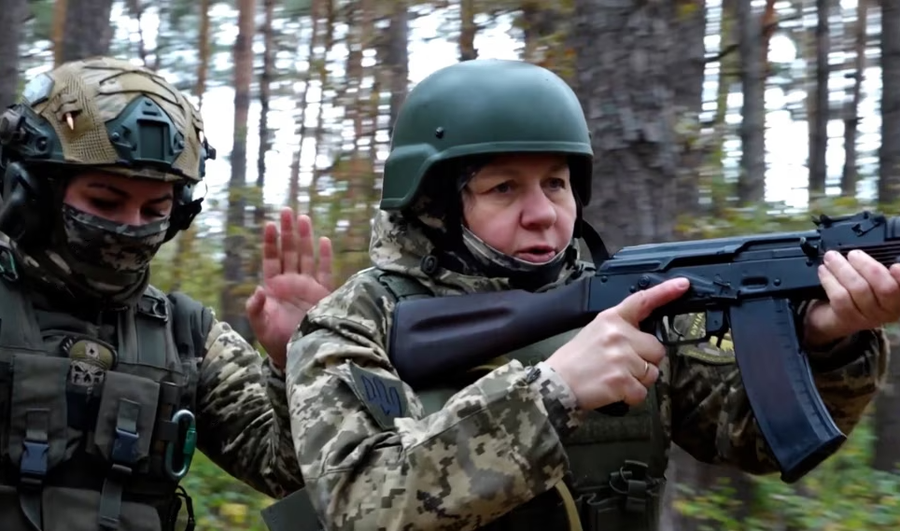
Several women from cities in the Kiev region are part of a military unit, voluntarily learning how to protect their families. They practice their profession every day, take care of their children while also having to deal with the trauma of the Russian attack. Voice of America correspondent Lesia Bakalets brings more about their stories and how the volunteer military units operate.
Every day at her job Inna has to deal with numbers and codes. She is a math and computer science teacher at a school in the Kiev region. But that is not her only job. Every three days Inna volunteers in a local military unit. She wears her uniform inside the car. Inna asked VOA not to publish her last name.
"It doesn't promise time to go home."
Inna joined the volunteer unit during the school holidays. She was a civilian volunteer when Russia launched its aggression against Ukraine, but says she always felt she could do more.
"I saw an announcement that female volunteers were needed. At first I was hesitant because of my age, I'm 51, but I decided to give it a try. I have three children and I want to protect them."
Colonel Andrii Verlatyi came up with the idea of establishing a volunteer military unit.
"Until April 1, my unit was mostly men. But then, the measure to increase mobilization was announced. Many soldiers voluntarily joined various divisions of the Armed Forces."
Colonel Verlatyi explains that only those who cannot serve in regular military service can become part of the volunteer formation, such as retired military personnel, those under the age of conscription, and women.
"On September 1, out of 120 volunteers in total, 94 were women. Women do everything possible to be the best, are more responsible and are highly motivated."
The women patrol the city alongside police officers and act as honor guards. They are also all training to be part of mobile air defense units.
"Now we are practicing. The commander monitors the Russian drones. We mark the coordinates, set up the machine guns and hit the target."
All of these women are from the area of the Kiev region that was occupied at the start of the war. Alina is a translator, while this other volunteer works in a bar.
"I was in Buça from the time the occupation began until March 11. My friends died in the occupation."
Inna remembers how she left the city with her children and says she doesn't want to feel hopeless again, like she did then.
"Now I am able to hold a weapon, even with one hand. I have better physical condition. We should not allow the Russians into the Kiev region anymore. I do not want to use weapons, but I have to be ready."
Inna continues to combine her work as a teacher with volunteering in the army. There is a shortage of teachers in schools. At first, her family was shocked by her decision. But now they say they are proud and can't wait for her to return after she finishes her work and training./ VOA (A2 Televizion)











